Bali’s quiet reawakening after a year without foreign tourists
With plans to reopen to foreign tourism by mid-year, many are wondering will Bali be the same? This is what life is like on the island now and what to expect when tourism resumes.
NSW
Don't miss out on the headlines from NSW. Followed categories will be added to My News.
A year ago when Bali emptied of foreign tourists, Gusde Tanaya grabbed his snorkel and headed for the sea.
The 27-year-old, who runs the Sanur Seawalker experience, began coral gardening in the waters off his family’s Puri Santrian resort as their businesses shut down.
Working with a biologist friend, he has spent the past 12 months collecting small corals and growing them on raised beds to begin restoring the reef, damaged by decades of fishing, beach sand extraction and a man-made channel.
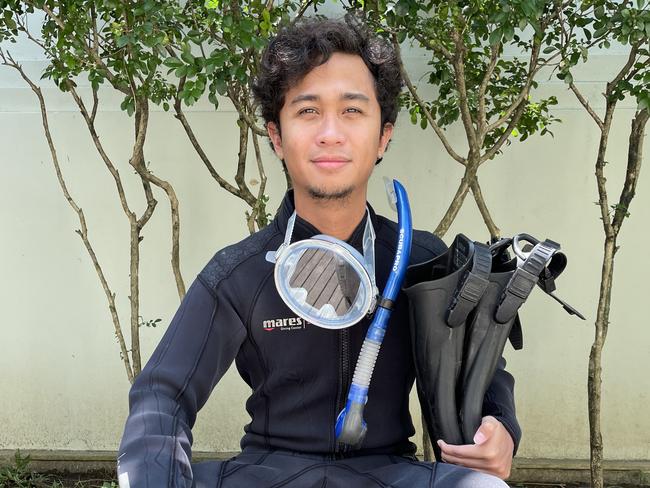
His efforts are part of a wider push that grew in 2020 to conserve Sanur’s marine environment during a year when COVID-19 forced a reset.
With close to $10 million set aside by the Indonesian Government for coral reef restoration in Bali, in part as a lever for economic recovery, Mr Tanaya is now imagining a different future for the island.
“For me to see Bali like this, it’s very sad. But in every disaster, there’s always an opportunity to grow,” he said.
“Anywhere with mass tourism, yes it brings in a lot of money, it brings up the economy. But on the other hand, it’s very destructive in certain parts.
“I would really love to see eco-tourism grow, or any type of tourism, that gives regards to the three factors — people, the economy and nature.”
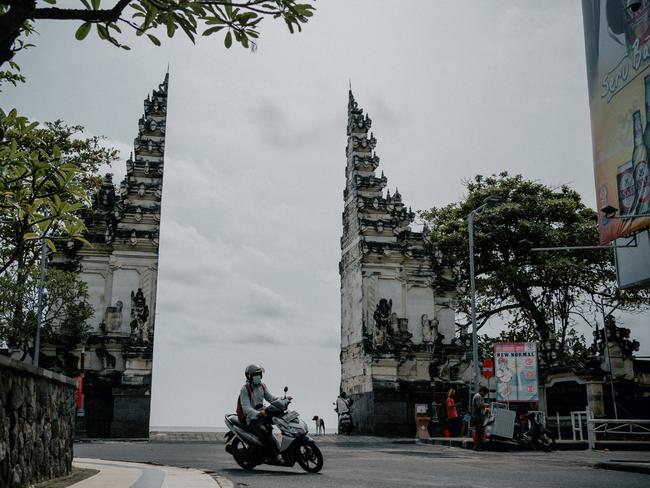
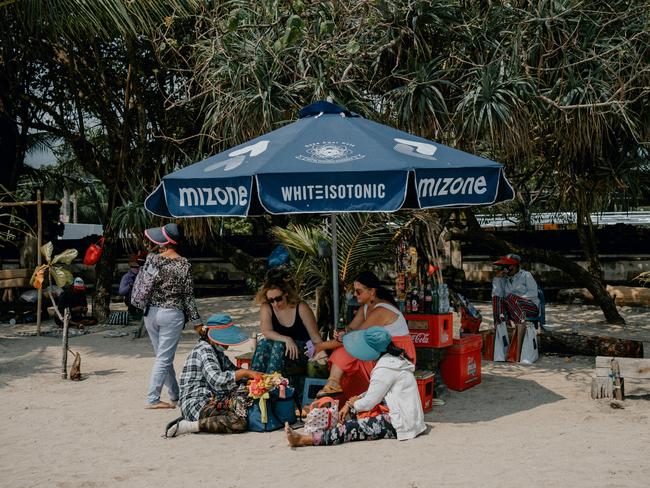
ADAPTING TO THE NEW BALI
There’s no skirting around the deep hardships COVID-19 has wrought on Bali since it closed to foreign tourists in March 2020.
About 80 per cent of residents rely on the tourism industry and with no government safety nets, job losses have been profound.
Many Balinese have returned to villages to farm, others have jumped between odd jobs, while charities and local Banjars have supplemented struggling families with millions of meals.
But running parallel to the heart-wrenching downturn is another story, says expat Karlie Cummins, one of resilience, innovation and hope, as Bali looks ahead during a period of rare tranquillity on the island.
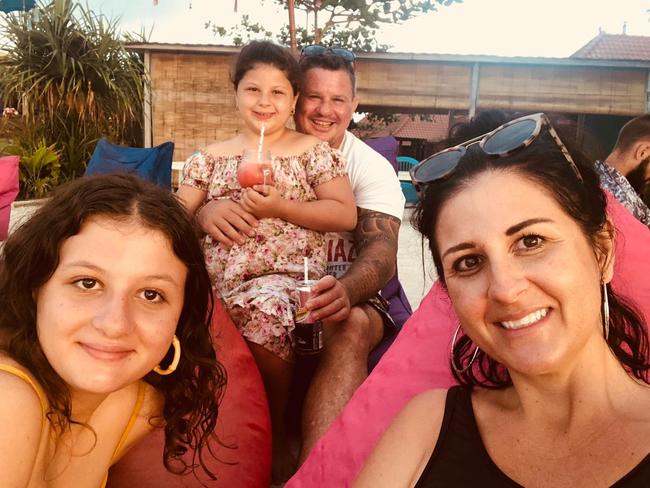
Mrs Cummins, who runs travel company Bali Buddies from Sanur, said watching how people adapted and helped each other in the past year had been remarkable.
“If you had told me two years ago, Bali is going to have no tourists for a year … I would think that it would look very different to how it does right now,” she said.
“But the Balinese are resilient people. They don’t really have a safety net, they’re not expecting anyone to catch them. So they know they just have to move into action and figure out something to work,” she said.
Tourism operators have pivoted to survive, refocusing on domestic tourism, while others including many locals have had to get entrepreneurial.
Her Balinese business partner who owns the cars used for their tours now cooks and sells food. Another friend who runs a warung has created a handyman team of trades usually employed in villas and hotels. Her own business now focuses on expats and domestic tourists.
About 70 per cent of resorts, restaurants and bars are back open, she said, many offering day passes, hosting birthday parties, and collaborating with other businesses on special events to appeal to the existing market.
“They’re getting very clever with how they’re making their money,” she said. “A lot of businesses you may normally look at as competitors are actually working together.”
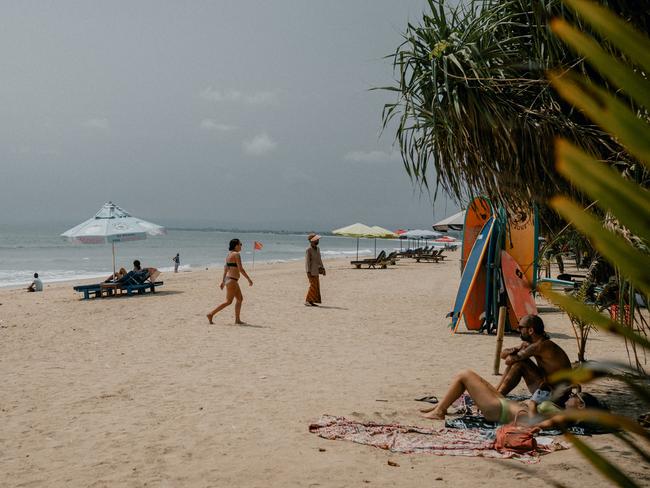
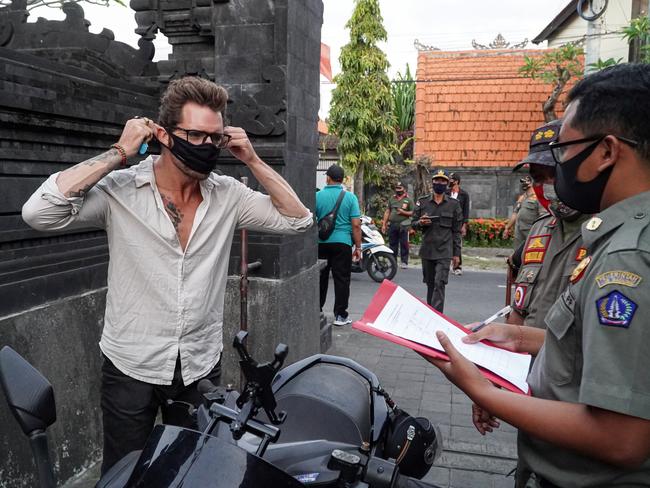
A TIME OF INNOVATION
Bali right now looks different from the heaving tourism of 2019 when close to 6.3 million foreign tourists arrived.
Traffic is non-existent, beaches are peaceful and tourist places like Kuta and Legian are more like sleepy coastal villages.
But in expat-heavy areas like Canggu, Sanur, Seminyak, even Ahmed, it’s busy. Schooling continues online, masks are compulsory and a 9pm curfew is in place, but otherwise life is pretty normal.
“We can go down the beach, go to restaurants, we can go to movies,” said Mrs Cummins.
“There’s no late night partying. But you can travel anywhere you want in Indonesia.”
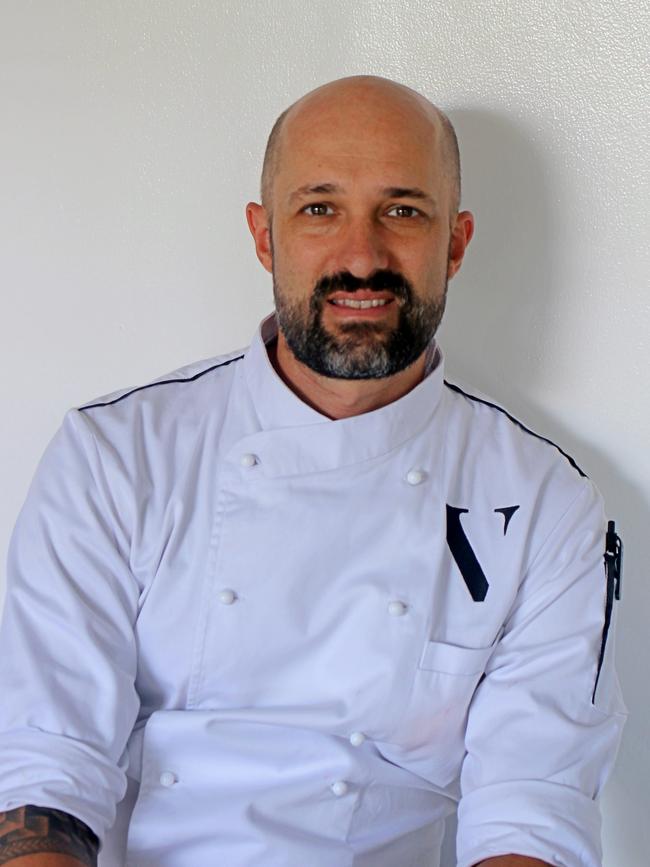
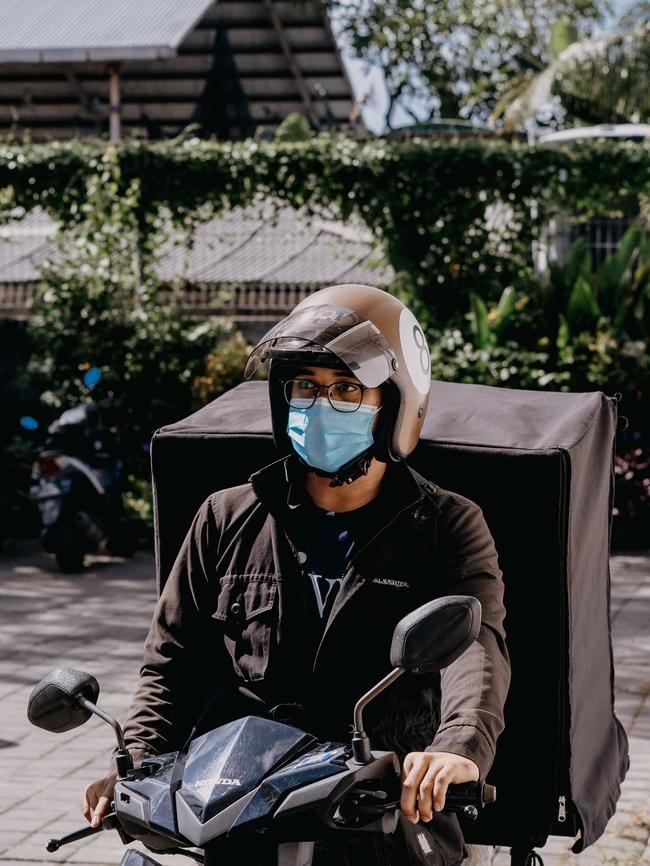
Josh Job, executive chef at the Vivre Group, which runs a major wedding and events catering company, says tourism still exists in Bali.
“It’s just evolved into a destination for Indonesia’s city dwellers,” he said, adding many Jakarta professionals working remotely were taking long stays, filling villas left empty by overseas visitors.
“We all make jokes that the traffic is so much better without foreign tourists but we can’t deny a lot of big and small businesses have failed and closed over the past year,” Mr Job said.
“But a lot of new businesses are opening in their place, it’s feeling like an exciting time, led by mostly local Indonesian innovation.”
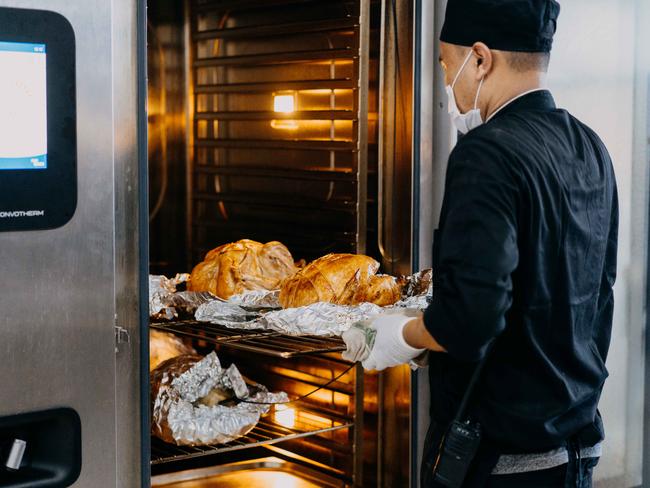
Vivre, which lost 97 per cent of business when borders shut, moved online last October, selling gourmet meals via vivregourmet.com.
It also threw its support behind local food producers, from hot sauce brewers to pickle makers, creating family recipes at home in response to losing jobs.
Every week, he said, new artisan food producers were hitting the scene as Indonesians from other islands spent more time in Bali, bringing their business ideas and flavours.
“Bali’s cafes, beach clubs, art markets and tourist attractions are reopening and staying open, just with a fresh idea of how to do business in the Bali now — not then.”
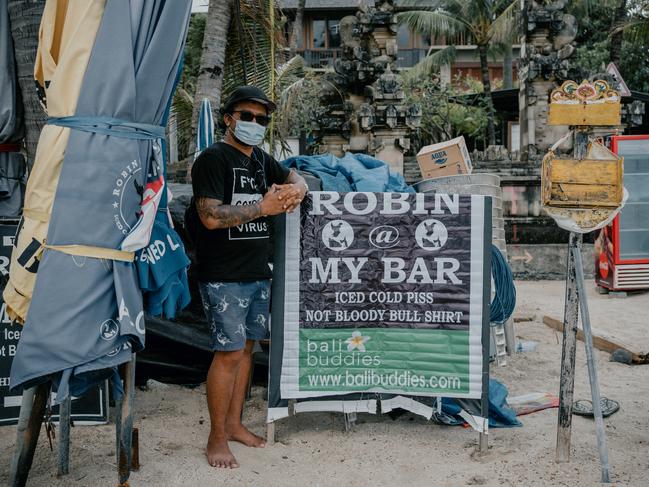
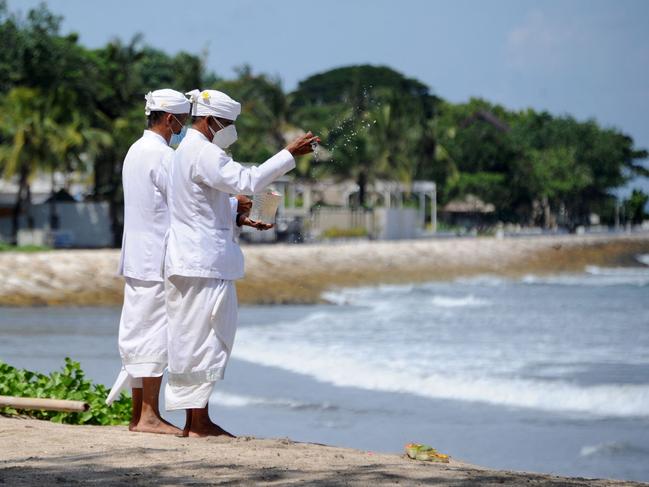
The adaptability and innovation on the island had been extraordinary, he said.
“There are out-of-work chefs due to lack of tourism. But on the other hand, there are also community kitchens popping up all over Bali, which take donated produce, funds and leftovers from food businesses to turn into meals for people who need help feeding their families.
“The spirit of Bali is to roll up your sleeves and do helpful work, whether it’s paid or not, people will take care of each other here.”
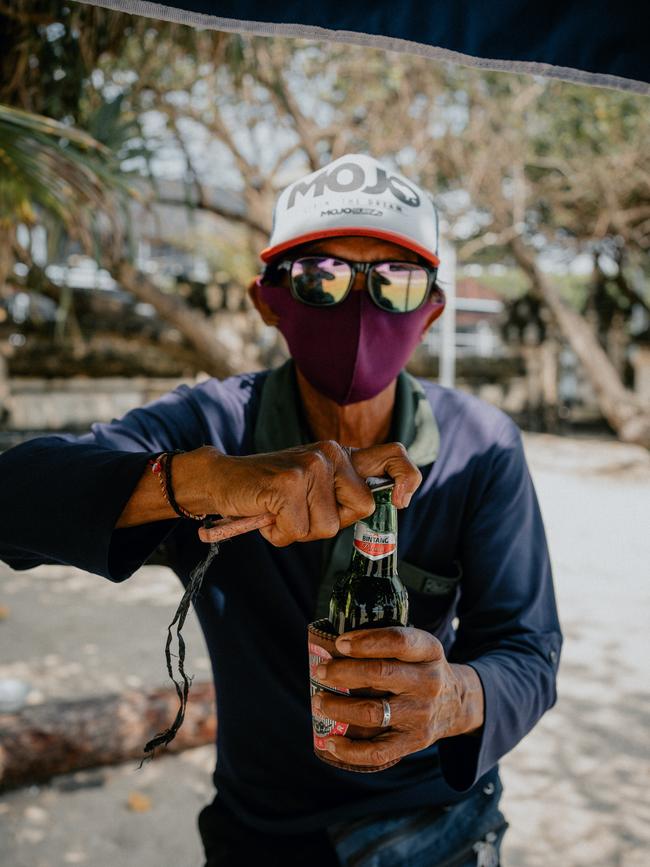
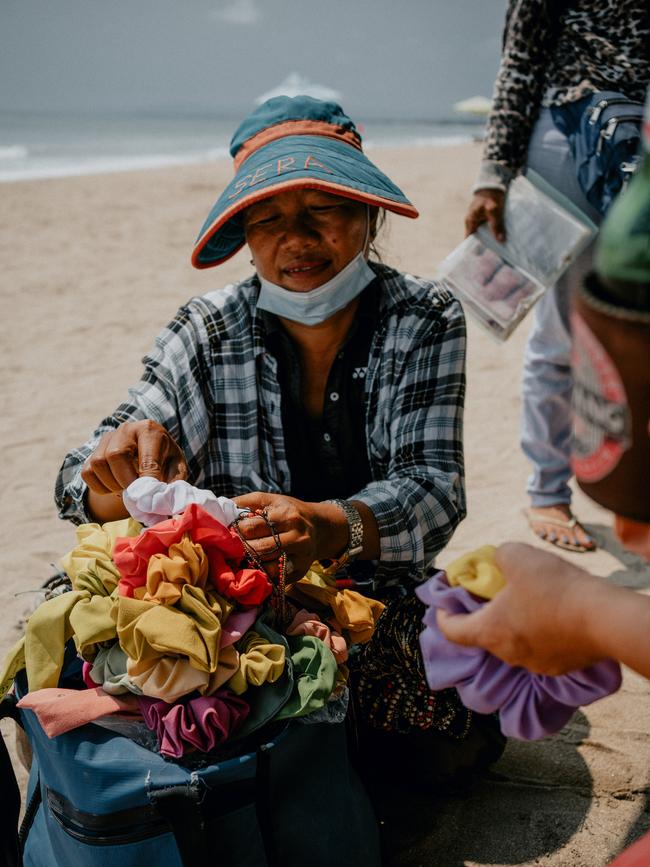
RETURN TO TRADITION
Thirty minutes out of Kuta in Bingin, Australian Michael Fogarty, who’s run boutique resort Mick’s Place for 25 years, has been surprised how the Balinese have handled the crisis.
“I knew the Balinese were resilient having witnessed them handle the fallout from the Bali bombings and the volcanic eruptions that drastically cut the tourist number,” he said.
“But I’m still very surprised as to how well they have handled this lengthy crisis with next to no tourists for the past 12 months.”
Not only had they shown great community spirit, but there’d been a return to more traditional ways that don’t require the consumerism that had crept in pre-COVID, he said.
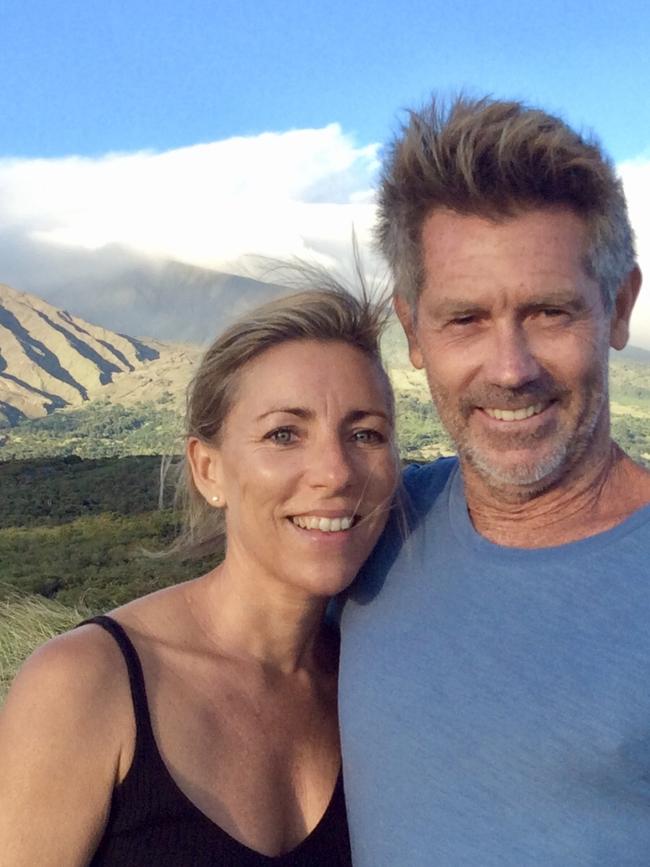
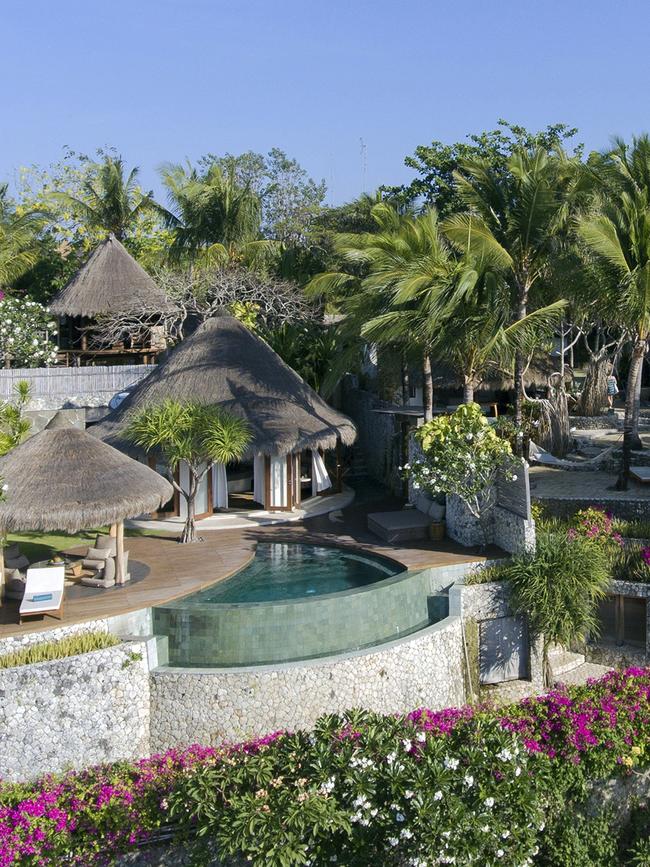
Fogarty who was forced to send staff home with pay for three months at the start of the pandemic, has since been operating for domestic tourists. He’s used the downturn to do some renovations, and financially it’s been “really stressful” but the slowdown has had an upside.
“In the past 10 years of rapid tourist development in the area, the surrounding country side had become westernised and the simple Balinese way of life was getting lost,” he said
“But since the start of the pandemic and our local village connection of the past 12 months that same original feeling that attracted me so many years ago has come back once again.”
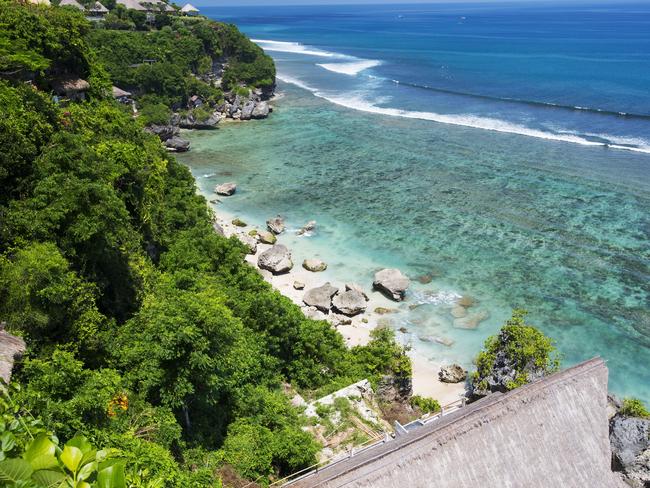
In his community, locals haven’t forgotten how to plant sweet potatoes, bananas and corn. The young surf instructors have learned how to fish and provide for their families.
Does he see a permanent reset in how Bali manages its future?
“There is already talk from the vice governor of Bali, Cok Ace, about cultural and sustainable tourism and getting away from the mass tourism where most of the money goes offshore.”
In the meantime, as the future unfolds, the big question he’s asked is, “When are Australians coming back again?”
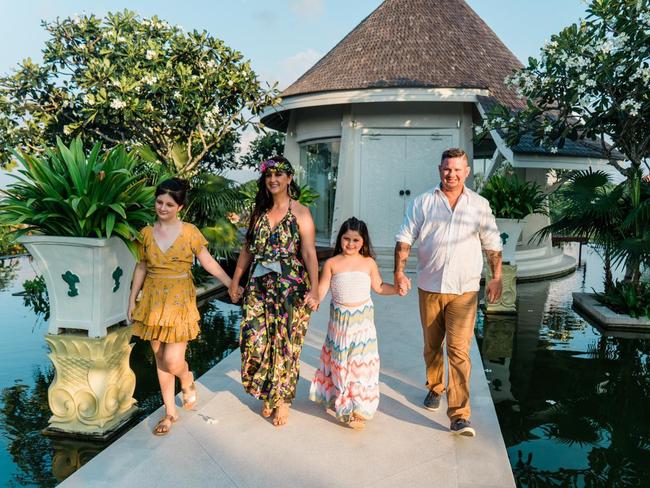
RAY OF HOPE
As the vaccine rollout picks up pace on the island, there’s some light at the end of the tunnel for Bali’s tourism industry
The Indonesian Government has made Bali a priority for vaccination, and this week began targeting 170,000 people in Ubud, Nusa Dua, and Sanur ahead of a potential reopening to foreign tourism mid-year.
President Joko Widodo said if vaccines brought down transmissions, and Bali controlled the virus, foreign tourism could restart as early as June or July.
Travel corridors are mooted with countries including China, the Netherlands, Singapore and the UAE, that have high vaccination rates and are deemed to be successfully controlling the virus.

Bali’s Tourism Minister Sandiaga Uno has also floated potential ‘green zones’ for vaccinated tourists to begin visiting in Ubud, Sanur, and Nusa Dua if travel returns, said Ms Cummins.
“What it looks like yet regarding possible quarantine, testing, green zones and so on is not 100 per cent clear but everyone is feeling a ray of hope,” she said.
Australians may be waiting until 2022 to travel overseas, but Bali will be waiting, she said.
“Some of the Aussies are worried that Bali is not going to be Bali when they come back. But it most certainly will be.
“The actual essence of Bali hasn’t changed. There’ll be a lot of excited locals waiting for them.”





